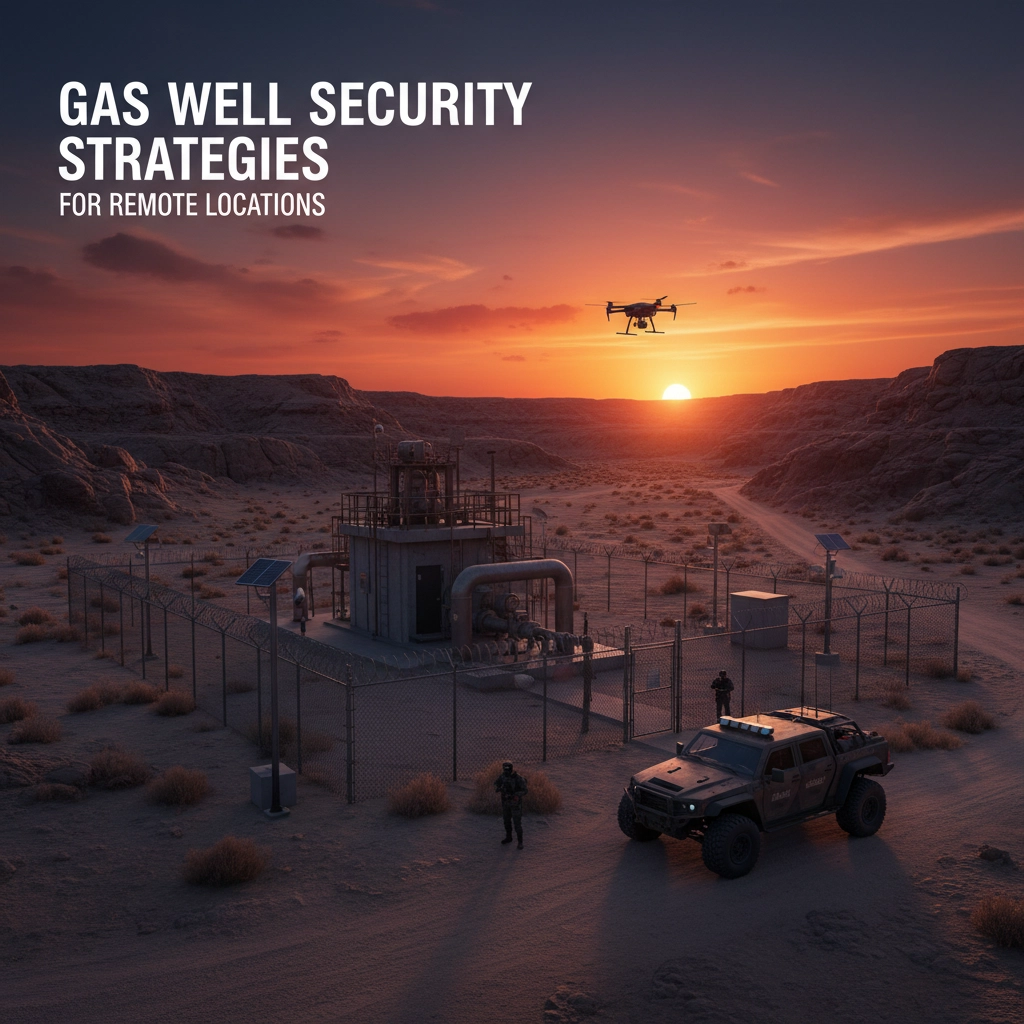Your November Security Briefing is Here
Welcome to your essential monthly security intelligence from Oil Well Security. As we navigate through November 2025, the energy sector faces unprecedented challenges that demand your immediate attention. This month's insights will equip you with the knowledge you need to protect your operations against evolving threats.
Critical Alert: Major Industry Conference This Week
Mark your calendar: the 20th Annual API Cybersecurity Conference for the Oil and Natural Gas Industry takes place November 11-12, 2025, in The Woodlands, Texas. If you're serious about protecting your assets, you cannot afford to miss this landmark event.

This year's theme, "Cyber Continuity: Oil and Gas Resiliency in the Digital Era," directly addresses the challenges keeping security professionals awake at night. You'll discover proven methods for countering cyber espionage and implementing the latest defensive technologies that actually work in real-world scenarios.
The conference offers Continuing Professional Education (CPE) credits alongside invaluable networking opportunities with industry experts who've faced the same threats you're battling. Since 2005, this volunteer-driven event has become the gold standard for cybersecurity intelligence in our sector.
The Threat Landscape Has Changed: Here's What You Must Know
State-Sponsored Attacks Are Escalating
Your traditional security measures aren't enough anymore. State-sponsored cyberattacks have grown increasingly sophisticated, with advanced persistent threats infiltrating critical systems over extended periods. These aren't random hackers: they're well-funded, highly trained operatives with one goal: extracting your sensitive data or disrupting your operations.
Recent intelligence reveals these threats operate with unprecedented stealth, remaining undetected for months while mapping your network infrastructure. If you haven't updated your threat detection protocols in the past six months, you're operating with a dangerous blind spot.
Ransomware Attacks Surge Across Energy Sector
The numbers don't lie: ransomware attacks targeting oil and gas operations have surged dramatically. These sophisticated attacks encrypt your essential data and demand payment for release, but here's what they don't tell you: paying the ransom doesn't guarantee data recovery.
Your best defense involves implementing comprehensive backup strategies and incident response protocols before an attack occurs. Companies that prepare for ransomware threats recover 73% faster than those caught unprepared.

Physical Security Threats You Cannot Ignore
Drone-Based Vulnerabilities Expose New Risks
While you've focused on cybersecurity, physical threats have evolved in ways that might surprise you. Drone technology has introduced vulnerabilities that didn't exist five years ago. These unmanned systems can conduct surveillance, smuggle contraband, or carry explosives directly to your facilities.
Maritime security zones around your offshore platforms need immediate reassessment. Pirate groups in regions like the Gulf of Guinea and the Strait of Malacca actively threaten offshore facilities, using increasingly sophisticated tactics to target energy infrastructure.
Insider Threats Remain Your Hidden Vulnerability
Your biggest security risk might already have badge access to your facility. Disgruntled employees or contractors with system privileges present an often-overlooked vulnerability that can compromise even the most sophisticated external defenses.
Implement comprehensive background checks and continuous monitoring protocols for all personnel with access to critical systems. Regular security awareness training reduces insider threat incidents by up to 45%.
Regulatory Compliance: What Changed in 2025
Compliance requirements have tightened significantly this year. All oil and gas operators must now comply with updated International Maritime Organization cybersecurity guidelines and the National Institute of Standards and Technology's enhanced Cybersecurity Framework.

These aren't suggestions: they're mandatory requirements with serious consequences. Non-compliance results in significant penalties, reputational damage, and increased vulnerability to attacks. Companies that proactively exceed minimum requirements experience 60% fewer security incidents than those that merely meet basic standards.
Data Security in the AI and IoT Era
Your operations now integrate artificial intelligence, cloud computing, and IoT technologies that create new attack vectors for malicious actors. Every connected device represents a potential entry point for cybercriminals.
Robust data security measures have become essential to protect critical information from exploitation. If you're deploying AI or IoT solutions without comprehensive security assessments, you're essentially inviting attackers into your network.
Building Resilience: Your 2025 Security Strategy
System Redundancies Save Operations
Future-focused security emphasizes resilience: your ability to bounce back quickly from attacks through system redundancies and fail-safes. Backup power systems, redundant communication networks, and distributed data storage aren't luxuries anymore; they're necessities.
Companies with comprehensive resilience strategies maintain operations during 89% of security incidents, while those without proper redundancies face extended downtime that costs millions.
Regular Drills Enhance Response Capabilities
Testing your incident response plans through regular drills and simulations prepares your personnel for real-world scenarios. These exercises reveal gaps in your procedures before criminals exploit them.
Schedule quarterly drills covering different threat scenarios: ransomware attacks, drone incursions, physical breaches, and insider threats. Each drill should include lessons learned documentation and procedure updates based on performance outcomes.

Public-Private Partnerships: Your Strategic Advantage
The increasing involvement of state-sponsored threats requires coordination between government and private actors that goes beyond traditional security measures. Public-private partnerships enable joint training exercises and coordinated responses to large-scale incidents.
Government agencies provide intelligence sharing, regulatory guidance, and military support to protect facilities in high-risk areas. Companies that actively participate in these partnerships receive early threat warnings and access to classified intelligence that significantly enhances their security posture.
Recent Geopolitical Developments Impact Your Operations
Recent sanctions against Russian oil companies highlight how geopolitical tensions directly affect industry security requirements. These developments create ripple effects throughout global energy markets and alter threat landscapes in ways you might not immediately recognize.
Stay informed about sanctions, trade restrictions, and geopolitical tensions that could affect your supply chains, personnel, or operational territories. Companies with robust geopolitical risk assessment protocols adapt 40% faster to changing security requirements.
Your Action Items for November
Based on this month's intelligence, prioritize these critical actions:
- Evaluate your current threat detection capabilities against state-sponsored attack vectors
- Review and test your ransomware response procedures with your IT and operations teams
- Assess drone-related vulnerabilities around your facilities and offshore platforms
- Update background check protocols for personnel with system access privileges
- Schedule compliance audits against 2025 regulatory requirements
- Implement AI and IoT security assessments for all connected systems
Stay Connected with Oil Well Security
Your security challenges require expert guidance and proven solutions. Our team understands the unique threats facing oil and gas operations because we've helped companies just like yours navigate these exact challenges.
For immediate security consultations or to discuss your specific requirements, contact us at info@oilwellsecurity.com or call (970) 465-2525. Our security specialists are standing by to help you implement the strategies outlined in this briefing.
Remember: in today's threat environment, proactive security measures aren't optional. They're the difference between continued operations and costly shutdowns that impact your bottom line and reputation.
Stay vigilant, stay prepared, and stay secure.



